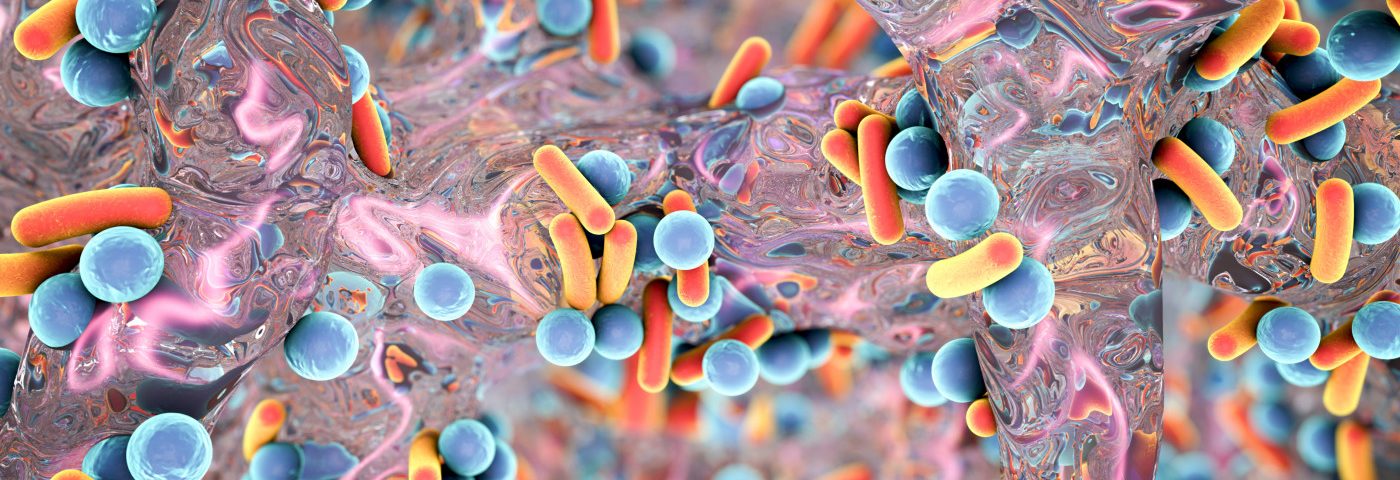Cellular processes leading to the production of inflammatory cells in the gut may help explain the development of inflammatory bowel disease (IBD) and lead to new therapies, according to researchers.
Their study, “IFN-γ-dependent epigenetic regulation instructs colitogenic monocyte/macrophage lineage differentiation in vivo,” appeared in the journal Mucosal Immunology.
Because intestines contend with more foreign substances than other parts of the body, a tight control of immune responses is key to a healthy gut. When this regulation is compromised, chronic inflammation may occur, potentially resulting in IBD.
Macrophages are a type of white blood cell that that play a critical role in engulfing pathogens and dying cells. Macrophages differentiate from monocytes, another cell type, and together they contribute to IBD in the colon.
But the process driving this differentiation and mediating the macrophages’ ability to cause inflammation in the gut had been unclear.
Using a mouse model of IBD, scientists from Tokyo Medical and Dental University in Japan demonstrated the relevance of a cellular signaling pathway to generate colitogenic (or reactive) macrophages in the gut.
The pathway contributes to the level of genes that encode inflammatory molecules, thereby increasing the production of these cells.
Compared to other cells, macrophages and monocytes in the colons of IBD mice led to a greater production of proteins that promote inflammation. These cells also had greater levels of Stat1, a molecule that boosts gene levels in response to interferon (IFN)-gamma.
IFN-gamma is a protein produced by the immune system that triggers responses to viral and microbial infections.
“Mice lacking Stat1 expression differentiated fewer inflammatory macrophages from their monocyte lineage, and additionally developed less severe inflammation of their colons than control mice,” Yusuke Nakanishi, the study’s first author, said in a press release.
“This shows the importance of the IFNγ-Stat1 signaling pathway in colonic inflammation,” Nakanishi said.
Besides the differentiation of inflammatory monocytes into macrophages, the results also showed that processes mediated by IFN-gamma were required to keep these macrophages in the inflamed colon.
The study also provided detailed insights into how IFN-gamma increases access to DNA to boost gene expression.
“We already knew that the response to pathogenic bacteria in the gut involves remodeling of the DNA-protein package known as chromatin, enabling access for the expression of genes involved in inflammation,” said Toshiaki Ohteki, the study’s senior author.
“This led us to investigate the role of [IFN-gamma] in a similar context, and we found that [IFN-gamma] loosened the chromatin structure around the promoters of two genes encoding inflammatory mediators, leading to an increase in their expression,” he added.
By identifying monocytes and macrophages and their cellular processes, the mouse study may provide new therapeutic targets for IBD and colon cancer, the researchers wrote.

